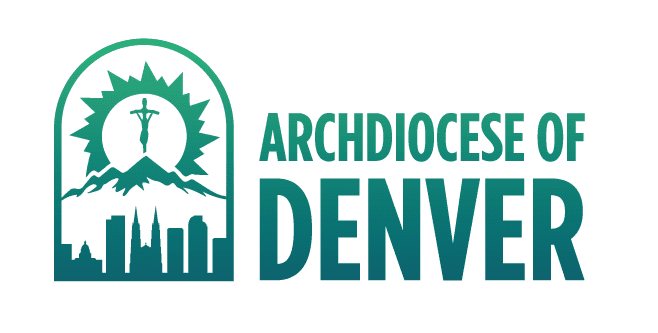We must face the past and learn from it, and we must know if our children are safe today. Thanks to our ongoing vigilance, they are.” – Archbishop Samuel Aquila, October 2019.
The Archdiocese of Denver is fully committed to protecting the most vulnerable members of our community – children, youth, and at-risk adults. Learn more about our decades of work promoting awareness, education, and action.
30-year Track-Record of Prevention & Response
Under the leadership of Archbishop J. Francis Stafford (1986-1996), the Archdiocese of Denver began the crucial work of seriously addressing this issue, including adopting a sexual misconduct policy a full decade before the national 2002 Dallas Charter for the Protection of Children and Young People. This initial policy established the groundwork for the work that continues today including mandatory reporting to police, required education and training for all employees and youth-serving volunteers, background checks, and survivor support.
Archbishop Stafford was also instrumental in establishing a diligent screening and formation process in the Archdiocese’s two seminaries to ensure the men studying for the priesthood are properly prepared for priestly life.
Under the leadership of Archbishop Charles Chaput (1997-2011), the Archdiocese implemented the 2002 Dallas Charter, which included a strict “zero-tolerance policy” for any substantiated allegation, the creation of the Office of Child & Youth Protection, enhanced protocols for investigations, guidelines for pastoral care and outreach to survivors, and annual national audits of all diocese and eparchies to ensure compliance with regulations.
In 2006, Archbishop Chaput opened one of the nation’s very first independent reparations programs that sought to provide resources and healing to survivors of historical sexual abuse through a compassionate and non-adversarial independent Outreach Panel. Over the next few years roughly 60 cases were settled, with the Church providing nearly $10 million in compensation to the survivors. In 2008, the Denver Post described the process as an “honorable way to address abuse,” and noted the “strong steps” taken by Archbishops Stafford and Chaput to address this issue.
Under the leadership of Archbishop Samuel Aquila (2012-present), the Archdiocese continues to train thousands of employees, volunteers, children, and teenagers every year in how to properly prevent and report potential abuse and neglect.
In 2018, as the spotlight returned to historical issues within the Church, the Archdiocese voluntarily began conversations with the Colorado Attorney General to conduct an independent historical review of the Church in Colorado.
2019-2020 Independent Review and Reparations Process
In February of 2019, the three Colorado dioceses announced a voluntary joint agreement with the Colorado Attorney General for a Special Master to conduct an independent review of the history of sexual abuse of minors by diocesan priests. The dioceses also announced the creation of an independent survivor compensation program.
The primary hope of the initiatives was to provide a measure of justice and healing to survivors, no matter how long ago their abuse occurred, and to encourage other survivors to come forward for the first time. The review would also provide a transparent accounting of how the dioceses had historically handled allegations of sexual abuse of minors, and an evaluation of the dioceses’ current policies and procedures to ensure best practices are being used by all parishes, schools, and ministries.
2019 Special Master’s Report and 2020 Supplemental Report
The Special Master was given unprecedented access to 70 years of Church files (1950-2019) and empowered with the ability to do follow-up interviews and investigations. The findings were compiled in a 250-page Special Master’s Report that was published in October of 2019, and a supplemental report was published in December of 2020 to include additional survivors who had come forward as part of the reparations program. For the Archdiocese of Denver, the reports listed 150 substantiated allegations of sexual abuse of a minor, committed by 26 Archdiocesan priests and one extern priest. But the reports also noted:
- Zero substantiated allegations against Archdiocesan priests in active ministry.
- Zero substantiated allegations against Archdiocesan priests since 1999.
- Over 85% of the incidents occurred more than 40 years ago (1950-1970).
- Nearly 50% of the incidents were committed by one man (Harold White).
The reports documented several historical failures to properly respond to abuse allegations but did determine that our current Safe Environment prevention methods are “effective,” and commended the Archdiocese for adopting six additional recommendations to make our policies and procedures even stronger.
“The conclusion of this process does not mean our work is done. As Catholics, we must re-affirm our commitment to never becoming complacent, and as a Church, that we will continue to pray for all survivors and their families. The survivors of abuse who have come forward should also know that their voices have helped make sure that the archdiocese is a safe place. We have endeavored to make our child protection measures part of the fabric of the Archdiocese and will continue this work to be a leader among all youth-serving organizations.” – Archbishop Samuel Aquila, Letter to the faithful, December 1, 2020.
“This was a unique Colorado solution, it was collaborative, it was committed to transparency and a full accounting, and it provided survivors with support that they desperately needed.” – Colorado Attorney General Phil Weiser, December 1, 2020.
2019-2020 Independent Reconciliation and Reparations Program
In addition to the independent review, the three Colorado dioceses created and funded an Independent Reconciliation and Reparations Program (IRRP) to allow survivors of sexual abuse to receive compensation from the Church through a simple and non-adversarial process. The program was run by nationally recognized claims administrators, with oversight from a local independent committee of experts.
The program had no statute of limitations and was designed to put survivors in control of the process. Participation was voluntary and strictly confidential, but nothing prohibited a survivor from speaking publicly. Survivors were given the opportunity for their stories to be heard and acknowledged, but without any of the invasive depositions and cross-examinations of a civil litigation process. The dioceses were bound to pay any award as determined solely by the administrators, but the survivors could choose to reject the offer.
For the Archdiocese of Denver, we paid 57 claims for a total of $6.3 million.
“The IRRP was an important step in the Colorado Dioceses’ ongoing work to assist survivors with the process of healing. Employing a non-adversarial and survivor-centered process, the IRRP created an opportunity for survivors to be heard, have their claims reviewed by a neutral and independent third party, and receive acknowledgement and financial assistance… It is the IOC’s sincere hope that the IRRP assisted in the healing process for survivors of abuse and the community at large.” – Former U.S. Senator Hank Brown, Chairman of the Oversight Committee
Information and Links
For more information on the independent review and reparations process:

